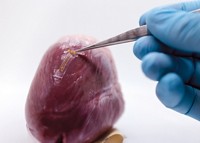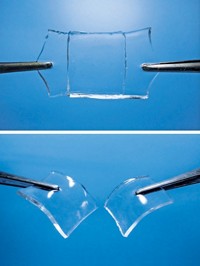Advertisement
Grab your lab coat. Let's get started
Welcome!
Welcome!
Create an account below to get 6 C&EN articles per month, receive newsletters and more - all free.
It seems this is your first time logging in online. Please enter the following information to continue.
As an ACS member you automatically get access to this site. All we need is few more details to create your reading experience.
Not you? Sign in with a different account.
Not you? Sign in with a different account.
ERROR 1
ERROR 1
ERROR 2
ERROR 2
ERROR 2
ERROR 2
ERROR 2
Password and Confirm password must match.
If you have an ACS member number, please enter it here so we can link this account to your membership. (optional)
ERROR 2
ACS values your privacy. By submitting your information, you are gaining access to C&EN and subscribing to our weekly newsletter. We use the information you provide to make your reading experience better, and we will never sell your data to third party members.
Materials
Filtering Instead Of Diffusing Kidney Toxins
Zeolite-polymer composite cleans toxins from blood, could be a dialysis alternative
by Elizabeth K. Wilson
March 3, 2014
| A version of this story appeared in
Volume 92, Issue 9
Dialysis is one of the few options for detoxifying the blood of patients whose kidneys are failing. During the process, blood is cleansed of built-up toxins, notably creatinine, as it diffuses through a semipermeable membrane. But dialysis is lengthy and expensive, and the equipment is cumbersome. Mitsuhiro Ebara and colleagues at the National Institute for Materials Science, in Tsukuba, Japan, have now developed a zeolite-polymer material that selectively adsorbs creatinine from blood (Biomater. Sci. 2014, DOI: 10.1039/c3bm60263j). Drawing from advances in water purification, the team chose a zeolite that selectively adsorbs creatinine and paired it with a blood-compatible polymer, poly(ethylene-co-vinyl alcohol), via an electrospinning method. The resulting nanofiber material can be formed into a thin, watch-sized wafer that could be worn as part of a miniaturized purification system. Although the creatinine-adsorbing capacity is still not great enough for the material to be used clinically, the researchers suggest the surface area of the fibers could be increased to tune the material. The group is also exploring ways to further modify the material to capture other toxins involved in kidney failure.




Join the conversation
Contact the reporter
Submit a Letter to the Editor for publication
Engage with us on Twitter